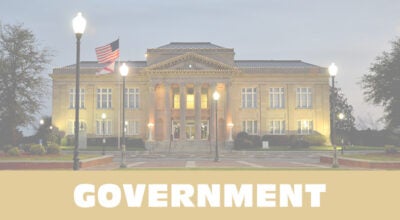State Supreme Court halts Amos Trust investigation
Published 11:00 am Sunday, June 9, 2024
|
Getting your Trinity Audio player ready...
|
An Alabama Supreme Court ruling has ended an investigation into allegations that funds from the Mabel Amos Memorial Trust were misused by Regions Financial Corp. and members of the trust’s board.
The high court voted unanimously, 8-0, with Justice Greg Cook recusing himself, that a 2023 circuit court’s decision to send the case to a special master “exceeded (the circuit court’s) discretion.”
“In summary, the circuit court’s order referring all matters in these cases to a special master exceeded its discretion,” said Associate Justice Brady Mendheim in the opinion.
The lawsuit filed in 2022 claimed that Regions and a former chief trust officer improperly charged the trust exorbitant fees after oil was discovered on Amos’s Conecuh County property and that scholarship money was inappropriately provided to children of trust board members.
Deputy Alabama Attorney General Allen Dodd said in a November hearing that the parties involved in the lawsuit were close to reaching an agreement in the case. The trust’s board members are John Bell, who is now retired from Regions, but was the fund board member representing the bank; Rick Clifton, current president of the Covington County Economic Development Commission; and Alabama Ethics Commission Executive Director Tom Albritton.
The suit seeks to remove the fund’s trustee and board members, and restore “misappropriated” assets to the fund. The son and daughter of Albritton allegedly received $120,000 from the trust to attend the University of Texas. In March 2023, Attorney General Steve Marshall accused Albritton of improperly benefiting from the trust in a motion to the lawsuit.
The trust was established by former Alabama Secretary of State Mabel Amos, the first woman elected to that position. She served in that office from 1967 to 1975. She died in 1999.
The plaintiff’s attorney, Byron Mathews, said the court’s decision does provide an opportunity for the circuit court to again refer the investigation to a special master, but narrowing the scope.





